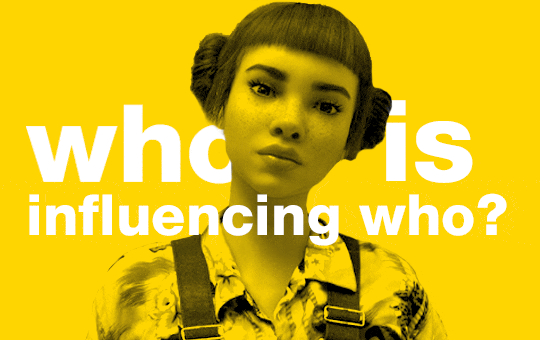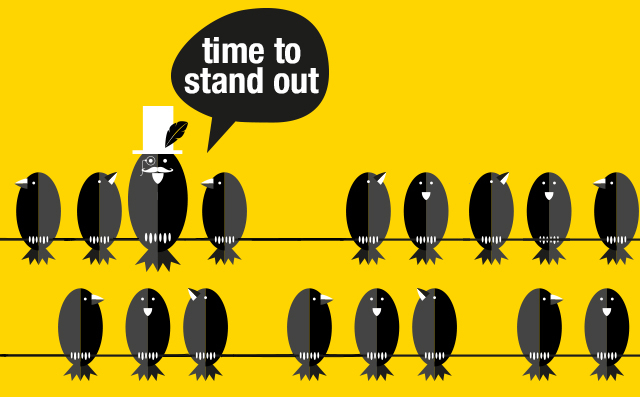Let’s pretend – Social influencers turn virtual
Activists, trendsetters, mummy bloggers, Youtubers, pet influencers, unboxers and Instagrammers. Everywhere you look on social media there is someone trying to steer your choice for your next purchase, be it a snack, trainers or a new car. But what if there was the possibility of creating your own ‘virtual influencer’, unique to your brand?

The now very real possibility is making brands and agencies take note. The 2018 Sprout Social Index reported that the majority of marketers (56%) are looking for extended brand reach through influencers. It’s not just fashion, beauty and food brands looking for ambassadors, financial and healthcare brands are getting in on the action too.
Diving into the world of the virtual influencer
When you think about it, it seems blindingly obvious. In another league from the humble chatbot, using CGI and AI technologies, anyone could create an avatar to communicate on social media – seemingly real at a glance, yet actually figments of the imaginations.
Leading the pack are the Instagram-famous Miquela and Shudu. For the uninitiated, Miquela is an urban, savvy musician and model with an enviable wardrobe and a desire to champion equality and diversity. Her Instagram following has continued to grow steadily since first appearing in 2016. Shudu, touted as the ‘first digital supermodel’ promoted a lipstick to her followers, before ‘coming out’ and revealing she wasn’t ‘real’. Far from harming their profiles, the revelations of their virtuality have sparked more interest, in both the influencers and the people behind them.
Miquela and Shudu do what other good influencers do on social media: they respond to comments, thank followers and subscribers, show off the very best sides of their personalities and appearance, and ‘live’ an enviable lifestyle with a range of aspirational labels and locations.
It’s doubtful that established influencers such as Zoella or Lele Pons are quaking in their immensely successful boots as yet, but this new type of influencer will doubtless continue to make waves, especially when it comes to the bottom line. Brands know that engaging celebrities as influencers can be an expensive business (David Beckham can earn an estimated £175,800 for a single #ad post). Think of the flexibility to place your influencer wherever you want around the world, dressed in whatever you choose and doing anything you like, all without the first class price tags.
Many brands can be nervous about trusting influencers, especially in the wake of scandals such as Logan Paul’s recent episode in Aoikigahara, the suicide forest in Japan, and the significant fall from grace associated with it. It’s a double-edged sword balancing that risk with the honest endorsement delivered directly to your chosen target market. So, virtual influencers could be scandal free, right? Wrong. Part of the interest directed at Miquela and Shudu stems from associated dramas, although in quite different ways. Miquela ‘came out’ as a robot after her Instagram account was hacked. Despite being carefully orchestrated, the PR ‘hack’ stunt has made Miquela more endearing to both followers and brands alike. Shudu has courted much more in the way of controversy when it came out her creator was a white, twenty-eight-year-old man, the British photographer Cameron-James Wilson. The social theorist Patricia Hill Collins called Shudu an image “contrived by a white man who has noticed the ‘movement’ of dark-skinned women.” His revelation that one of his main influence was Princess of South Africa Barbie didn’t help mitigate the backlash.
As demonstrated by these two examples, the future could be agencies and brands creating bespoke personalities, with their own, chosen, controlled flaws, but they will require thoughtful consideration, strategy and targeting to engage without offence or appropriation. ASA compliance and transparency will be key, including announcing that the avatars are computer generated, of course.
If all this seems too manufactured and inauthentic, you only need to consider the success of ‘real life’ dramas and ‘reality’ shows such as Love Island, Keeping Up With The Kardashians, The Only Way is Essex or Big Brother to realise the truth. As “Miquelites” have known from the start, no one is really ‘real’ when it comes to social media or digital dramas and the stories around these virtual influencers are no more staged than those shown with disclaimers in the credits. At least the audience is in on the secret from the start.
Virtual influencers have the potential to shake up this popular marketing tool in the best way possible, although it won’t be the end of celebrity and micro influencers any time soon. Influencers of all types can still be an excellent way to communicate a brand’s values and relay information in an approachable style. Social media offers a mostly level playing field where everyone has the chance to share a voice. So why not custom-build the next champion for your brand?


